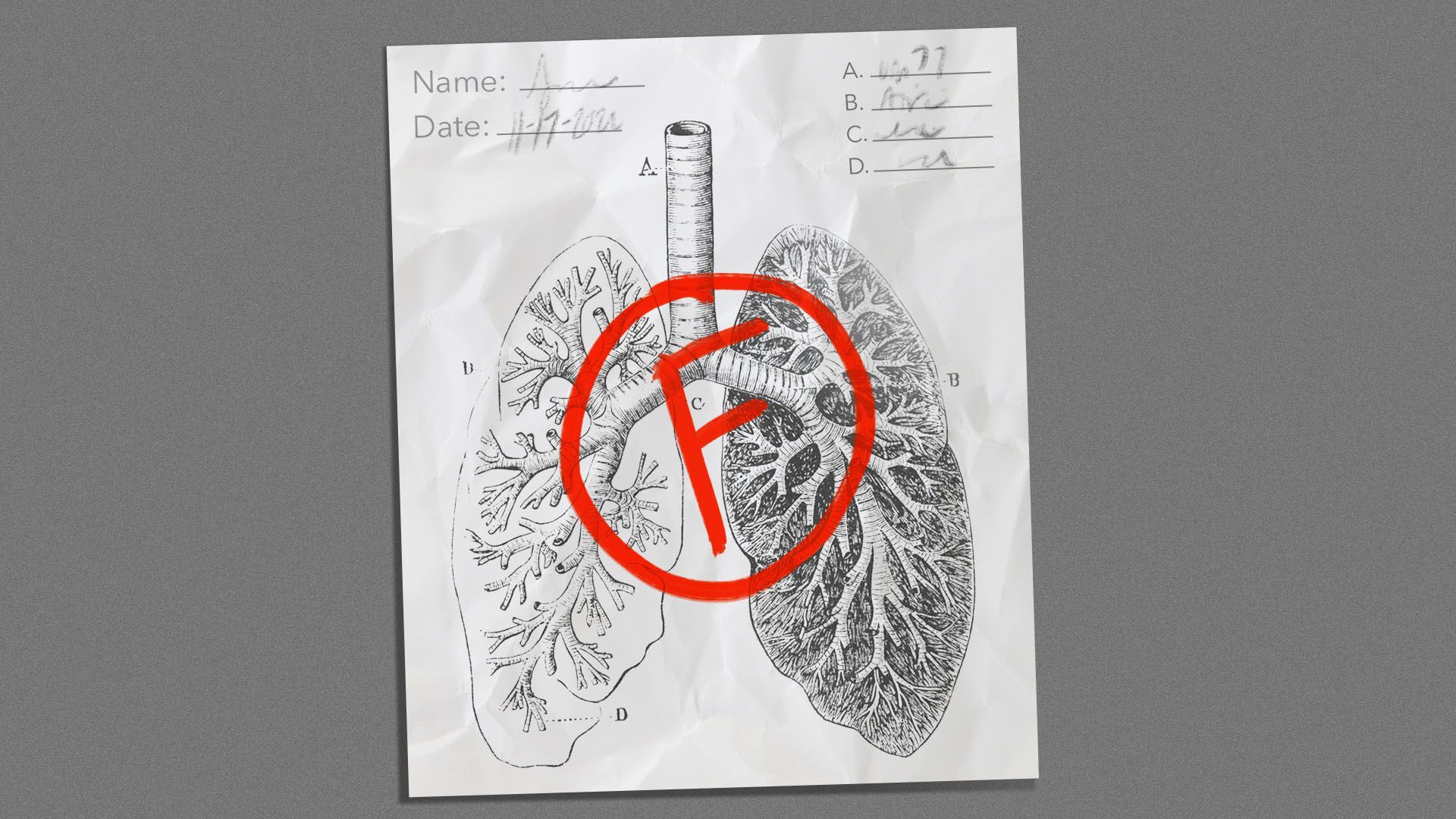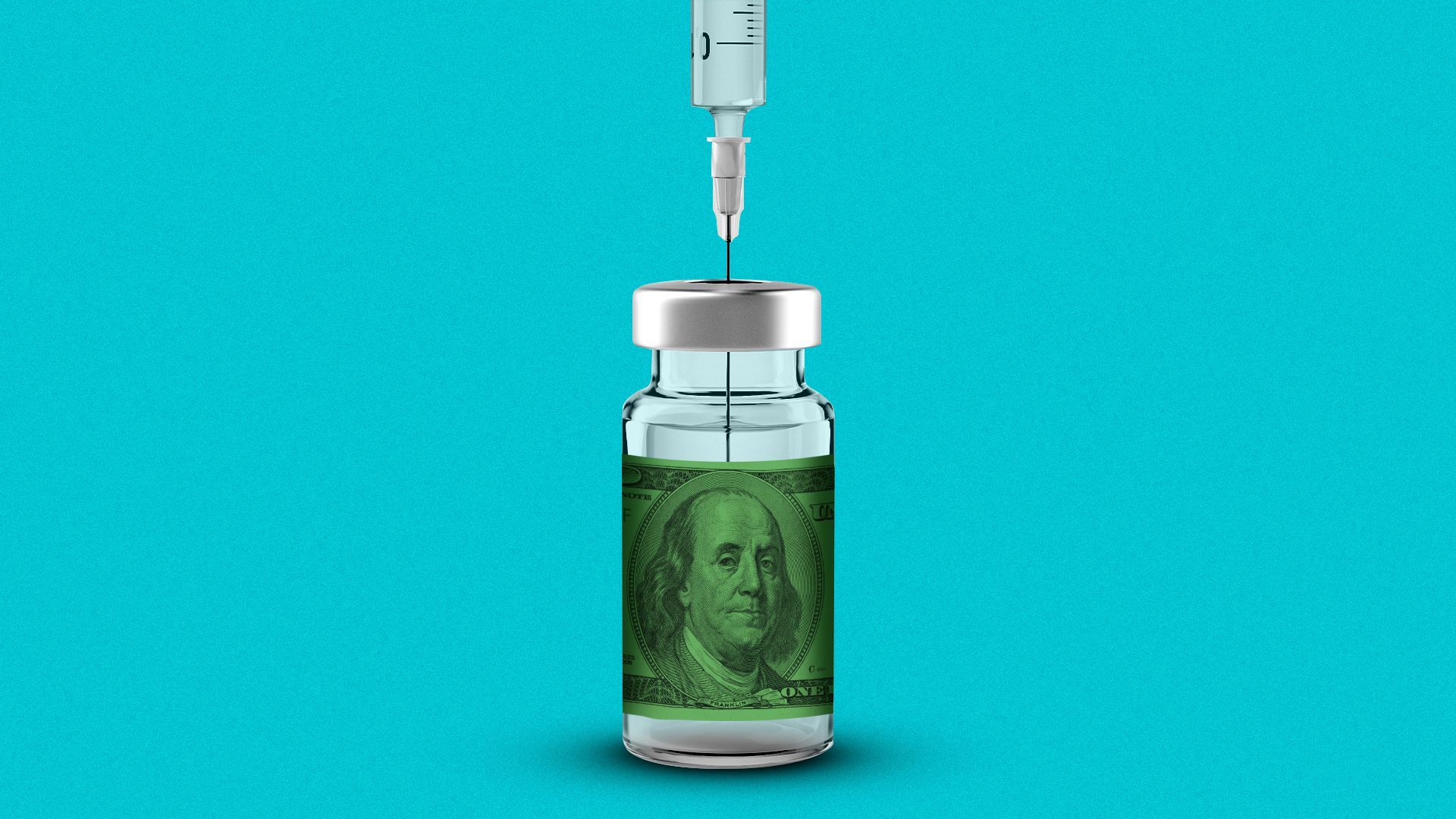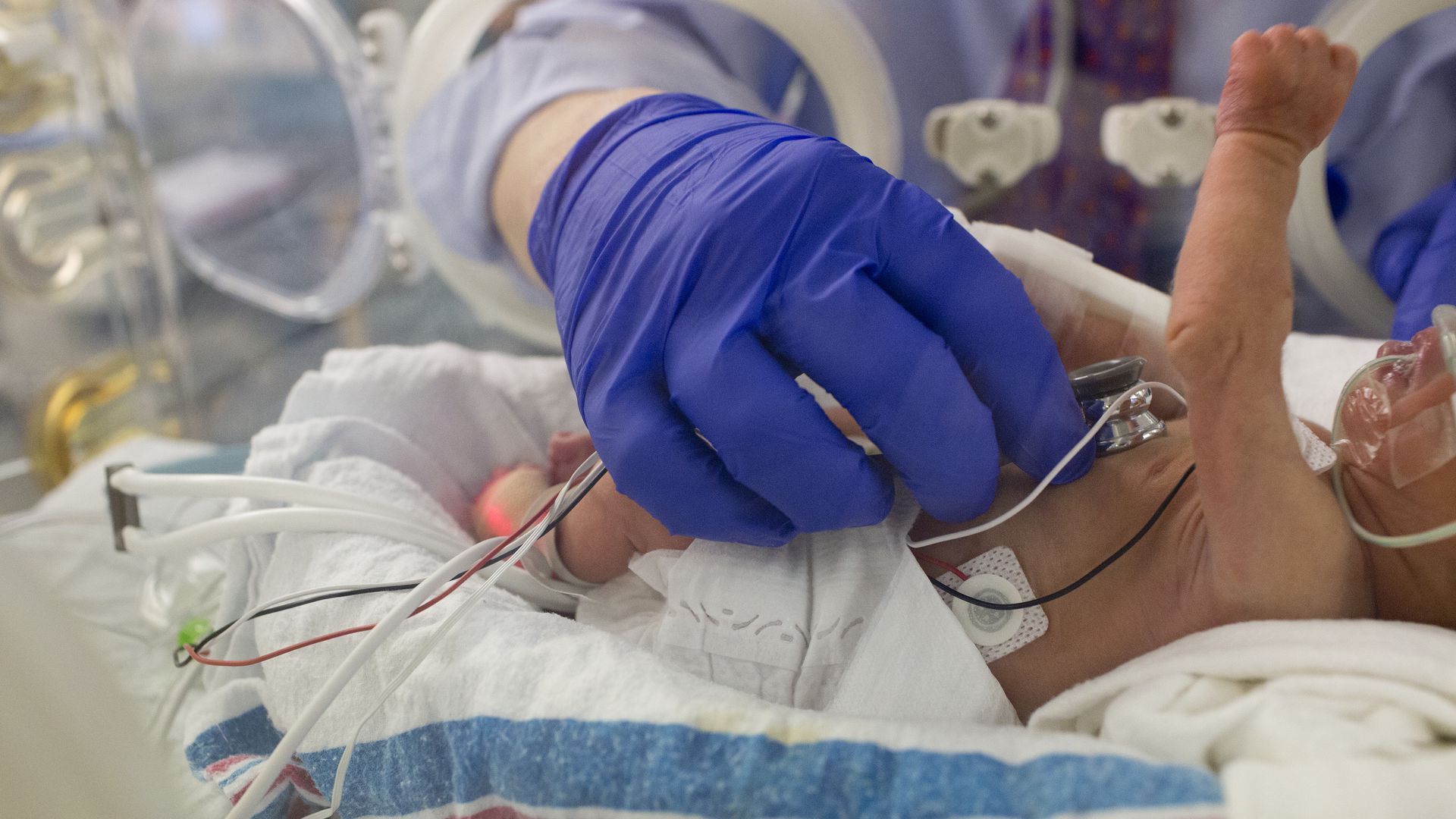| |
| |
| |
| Presented By UnitedHealth Group |
| |
| Axios Vitals |
| By Tina Reed ·Nov 17, 2021 |
| Good morning, Vitals readers. Today's newsletter is 776 words, or a 3-minute read. Join Axios' Caitlin Owens and Sam Baker today at 12:30pm ET for a virtual event highlighting innovations in care for cancer prevention and treatment. Register here. |
| |
| |
| 1 big thing: Schools' air cleaning systems fall flat |
 |
|
| Illustration: Sarah Grillo/Axios |
| |
| Hundreds of school districts rushed to invest in new air cleaning systems to help alleviate COVID concerns. But in many cases, those investments turned out to be doing more harm than good, Axios' Marisa Fernandez reports. Why it matters: Some systems may not be as effective as claimed, and others could be exposing students and employees to harmful toxins, experts warn. Driving the news: 40% of school districts have used federal money to update their HVAC and air filtration systems since the start of the pandemic, new data from school tracker database Burbio shows. - School districts and universities have spent as much as $100 million on these projects — but it's often been for electronic air cleaning systems that rely on misleading, company-funded studies that boast 99.99 % efficacy, said Marwa Zaatari, mechanical engineer and a board member of the U.S. Green Building Council.
- "If you start to dig into the company tests and all the cheating is happening. 99.99% doesn't mean anything," she said.
What's happening: The air-cleaning space is largely unregulated, making it hard for non-experts to understand what they're getting, experts said. - Matthew Johnson, professor of chemistry at the University of Copenhagen, said he warns schools away from products that boast the use of ionization, plasma, dry hydrogen peroxide, or ultraviolet rays.
- Zaatari recently joined colleagues in writing an open letter warning school districts against investing in electronic air-cleaning devices and urging those who have them to disable them.
Yes, but: Some large school districts have begun to raise questions, but it's often hard to unwind these investments. - "No one wants to say they wasted money," Zaatari said.
Go deeper. |
    |
| |
| |
| 2. Oral antivirals are coming with winter COVID surges |
 |
|
| Photo illustration: Pavlo Gonchar/SOPA Images/LightRocket via Getty Images |
| |
| Pfizer asked the FDA on Tuesday for emergency authorization of Paxlovid, its experimental COVID-19 treatment, Axios' Noah Garfinkel writes. - Experts say the oral antivirals could be a critical tool to curbing emerging winter surges in the U.S., as well in low- to middle-income countries that have far lower vaccination access.
Details: The Pfizer pill regimen was shown in clinical trials to reduce the risk of hospitalization and death by 89% in people at high risk of severe illness, Pfizer said earlier this month. Context: This request comes less than a month after Merck and Ridgeback Biotherapeutics requested an emergency use authorization for their antiviral, molnupiravir, for adults who have tested positive for COVID and are at high risk for severe disease. - The FDA's advisory committee will meet on Nov. 30 to consider that request.
- The U.S. has committed to buying about 3.1 million courses of molnupiravir for $2.2 billion after the drug receives an EUA.
Related: Fauci: Boosters could see COVID reach endemic level in U.S. next year |
    |
| |
| |
| 3. New generic insulin not as cheap as you thought |
 |
|
| Illustration: Aïda Amer/Axios |
| |
| Drug company Viatris has priced its new generic insulin, called Semglee, at almost $270 per vial, a mere $20 cheaper than the longstanding competitor that has existed for years, Axios' Bob Herman writes. The big picture: The rollout of Semglee highlights the specific warped incentives within the insulin market, where diabetes patients have struggled to afford their insulin for years. By the numbers: When the FDA approved Semglee, technically called an "interchangeable" biosimilar drug, it appeared Viatris priced the drug at $98.65 per vial. - It turns out that was the price of a different Semglee, which was approved in 2020 and is being phased out, and now that $98.65 price will apply to an unbranded version of Semglee.
- The list price of the interchangeable Semglee is $269.38 per vial ($404.04 per five-pen package).
- That compares to Lantus, the main competitor, which is $283.56 per vial ($425.31 per five-pen package).
The bottom line: Physicians and pharmacists can easily substitute Semglee for Lantus, but it doesn't appear this will significantly affect how much everyone pays for this type of insulin even though that's the big selling point of biosimilars. Share this story. |
    |
| |
| |
| A message from UnitedHealth Group |
| Health care's $320 billion opportunity |
| |
 |
| |
| The U.S. health system could save $320 billion over the next decade by treating common conditions in a primary care setting instead of the emergency department. See how UnitedHealth Group is helping people access high-quality, affordable health care that meets their unique needs. |
| |
| |
| 4. 1 big number: Premature birth disparties |
 |
|
| Photo: Andrew Lichtenstein/Corbis via Getty Images |
| |
| The national preterm birth rate dropped from 10.2% in 2019 to 10.1% in 2020, the first such decline in six years, according to a report published by the nonprofit March of Dimes. But, but, but: There were still increases in preterm births among Black Americans and Native Americans or Alaska Natives. - Black, Native American and Alaska Native women are still 60% more likely to give birth prematurely than white women, Axios' Ivana Saric writes.
|
    |
| |
| |
| 5. Catch up quick |
- One of America's strictest mask mandates is about to end, reports Axios D.C. co-author Chelsea Cirruzzo. (Axios)
- How America's largest Catholic hospital system is moonlighting as a private equity firm. (STAT)
- The upside of COVID hygiene theater. (The Atlantic)
- New Cures 2.0 bill extends key telehealth flexibilities, hastens CMS approval of medical devices. (Fierce Healthcare)
|
    |
| |
| |
| A message from UnitedHealth Group |
| Helping older Americans access care at home |
| |
 |
| |
| UnitedHealth Group is working to expand access to convenient, high-quality, home-based care for seniors. See how we're helping to close gaps in care by providing more than 1.7 million seniors access to free, in-home primary care this year. |
| |
| 📫 Did someone share this newsletter with you? Here's how to subscribe. |
 | | It'll help you deliver employee communications more effectively. | | |








No comments:
Post a Comment